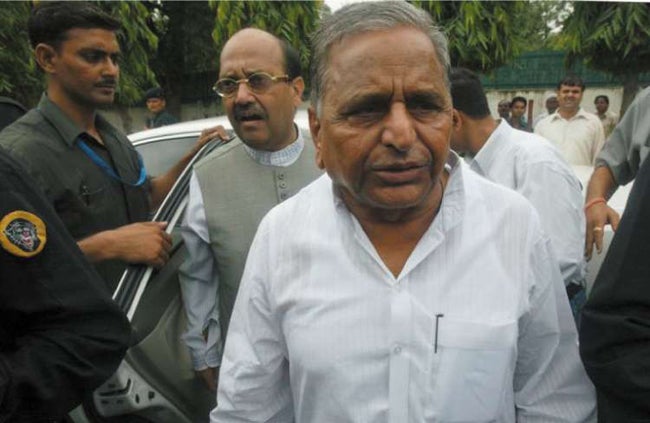Congress Party turns to Socialists to ratify US deal

Your support helps us to tell the story
From reproductive rights to climate change to Big Tech, The Independent is on the ground when the story is developing. Whether it's investigating the financials of Elon Musk's pro-Trump PAC or producing our latest documentary, 'The A Word', which shines a light on the American women fighting for reproductive rights, we know how important it is to parse out the facts from the messaging.
At such a critical moment in US history, we need reporters on the ground. Your donation allows us to keep sending journalists to speak to both sides of the story.
The Independent is trusted by Americans across the entire political spectrum. And unlike many other quality news outlets, we choose not to lock Americans out of our reporting and analysis with paywalls. We believe quality journalism should be available to everyone, paid for by those who can afford it.
Your support makes all the difference.He has been a wrestler, an ally of the so-called Bandit Queen and has served as chief minister of India's largest state three times. Now Mulayam Singh is propping up India's government as it seeks to finalise a nuclear deal with the US.
The political veteran and head of the Samajwadi Party (SP) stepped in to support the government after its communist coalition allies withdrew their backing when Prime Minister Manmohan Singh insisted he was to proceed with the deal. The Prime Minister insisted the deal is essential to safeguard long-term energy supplies while the left argued that it gave the US too much influence over India's foreign and domestic policy.
After the communists made clear they would not support the Congress Party-led government, Prime Minister Singh and Sonia Gandhi, head of the party, were left looking for allies to avoid defeat in a no-confidence motion. Although they had previously been opponents of the SP, in an hour of need the pragmatic Mr Singh was the obvious target to reach out to in order to shore up a majority.
"Mulayam is a very experienced operator who negotiates hard and has his eyes set on power," Kuldip Nayar, a political analyst and historian, told Reuters.
Whatever else one may say of Mr Singh, one cannot accuse him of having lived an uneventful life. Before he entered politics he trained as a wrestler and reports suggest he retains a keen interest in the sport. A member of the Yadavs, a low-caste group from Uttar Pradesh (UP), from the very start of his political career, it was to these people and the Muslims of the state that he looked for support.
In 1992, having already once served as chief minister of UP, Mr Singh, the son of a farmer, formed the Samajwadi or Socialist Party. Among its early supporters was Phoolan Devi, a bandit-turned-politician better known in India as the Bandit Queen. She was elected as an SP member of parliament in 1996, only to be assassinated five years later outside her Delhi home.
Today, another powerful woman from UP is Mr Singh's greatest rival. Like Mr Singh, Mayawati, also known as the "Dalit Queen", relies on the votes of low-caste groups. But instead of being allies, they have always been on either side of the political debate. While Mr Singh has served as chief minister of UP three times, so too now has Mayawati. Despite years of the ruling Congress party and Mr Singh fighting each other in UP, Mayawati has become a common enemy.
Despite the support he has provided the government as it continues to push through the civilian nuclear deal with the US, Mr Singh – who once served as India's defence minister – is still something of a controversial choice of partner. He is being investigated by the police in UP who are looking into corruption allegations. UP remains one of India's most corrupt states.
Mr Singh and his deputy, Amar Singh, are in talks with the government ahead of a possible election later this year. Amar Singh, who has links to the billionaire Anil Ambani and is known for throwing lavish parties, has already laid out a series of demands from the SP. He wants a windfall tax on oil companies, a ban on exports of petroleum products and the use of foreign reserves to strengthen the rupee. The demands will prove a challenge for the Prime Minister as he seeks to confront rising food prices and soaring inflation.
Join our commenting forum
Join thought-provoking conversations, follow other Independent readers and see their replies
Comments